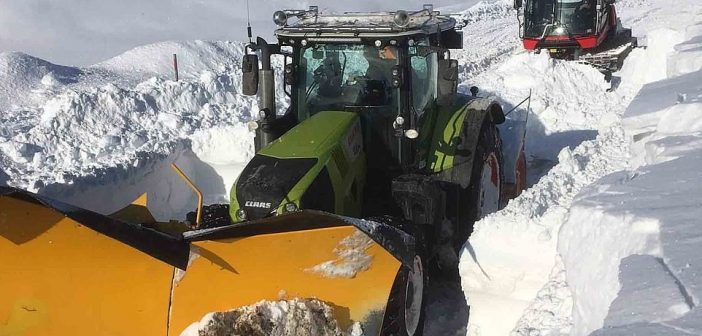The Thames has frozen over for the first time in 60 years as temperatures in England plunged to record lows overnight.
Seagulls perched on the frozen water on the River Thames in Teddington on Friday morning as it iced over for the first time since Britain’s Big Freeze in 1963.
Temperatures in Ravensworth, North Yorkshire, dropped to minus 15.3C overnight on Thursday, having hit a record low for England in February at minus 13.1C on Wednesday night. The cold snap looks set to continue as bookies slashed the odds on Valentine’s day being the coldest on record to 7/2.
Britain braced for up to four inches of snow and 50mph gales today. It is expected to be drier tonight but wintry showers will hit again as it gets dark, ushering in another freezing weekend for most.
Snow hit Newcastle overnight with families waking up to see the icy flakes covering most of the city, and boats on the River Great Ouse in Cambridgeshire were locked by frozen water this morning.
Meanwhile, the extreme cold caused wild fires in Devon, Cornwall and Scotland as icy conditions dried out vegetation, according to area commander Bruce Farquharson from the Scottish Fire and Rescue Service. A huge fire fuelled by fierce winds that engulfed swathes of Dartmoor on Thursday night was understood to have stopped spreading by Friday morning but it is not yet known what sparked it.
Met Office forecaster Matthew Box said Friday will be dry for much of England, with snow showers only affecting parts of north-east Scotland and ‘skimming’ into parts of north-east England’s coastal regions.
A Scottish farmer was forced to plough ’25ft high’ snow on an infamous vanishing road in Aberdeenshire.
Charles Gordon created passages through the A938 Lecht Road while packed snow towered above his snow plough. The road itself is known for disappearing under heavy snowfall in the winter but according to Charles, this is the most snow they have seen in 45 years.
Winds of up to 50mph are expected for south-west Wales, dropping to 20mph further inland throughout the day.
Mr Box said: ‘It’s going to be quite a windy day, which will add to the raw feel given the low maximum temperatures on Friday.’
Fresh snowfall of up to 3cm could fall across Angus and Aberdeenshire on Friday, according to the Met Office.
The weather warning read: ‘Further snow showers, most frequent on Friday night across Angus and Aberdeenshire, becoming fewer and lighter on Saturday morning. Fresh accumulations of 1 to 3 cm are expected, but locally 5 to 10 cm over higher ground of northeast Scotland. In addition, icy stretches will form as any partially melted snow refreezes, especially at lower levels.’
The icy chill on Friday followed 15 weather stations in Britain recording their lowest temperatures ever for February overnight on Wednesday, with the ‘extreme freeze’ also causing the mercury to plummet in Kinbrace and Strathallan in the Highlands – which recorded minus 21.3C and minus 18.2C respectively.
Freezing temperatures remained in Scotland overnight, with minus 15.4C recorded at Kinbrace, but the Met Office said it was unlikely to fall lower than earlier in the week.
The coldest UK temperature for 65 years was recorded at Braemar in the Scottish Highlands on Wednesday night, when the mercury dropped down to minus 23C.
Marco Petagna, meteorologist at the Met Office, said that strong winds across the Irish Sea and up to Scotland – reaching speeds of 50mph – would make temperatures ‘feel colder’.
In Dartmoor, Devon, where emergency services are currently tackling a large fire, gusts of up to 45mph are expected to continue throughout the day and temperatures will hover around freezing.
A spokesman for Devon and Somerset Fire and Rescue service told MailOnline: ‘The fire is under investigation and under control. We have two four wheel drives and a fire engine on the scene checking the area.’
Mr Petagna said small amounts of sleet and snow in the air in the region could ‘dampen things down’ but that it was unlikely to have any significant impact.

